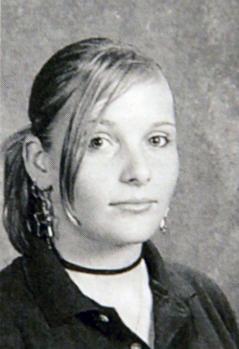|
|
|---|
Monday, April 5, 2010
This is undoubtedly the most famous and most widely-reprinted column by Ernie Pyle. A solemn and weary parade of men serving under Captain Waskowpay heartfelt tribute to the man who commanded
The Death of Captain Waskow
by Ernie Pyle
At the Front Lines in Italy, January 10th, 1944 . . .
In this war I have known a lot of officers who were loved and respected by the soldiers under them. But never have I crossed the trail of any man as beloved as Capt. Henry T. Waskow of Belton, Texas.
Capt. Waskow was a company commander in the 36th Division. He had led his company since long before it left the States. He was very young, only in his middle twenties, but he carried in him a sincerity and gentleness that made people want to be guided by him.
"After my own father, he came next," a sergeant told me.
"He always looked after us," a soldier said. "He'd go to bat for us every time."
"I've never knowed him to do anything unfair," another one said.
I was at the foot of the mule trail the night they brought Capt. Waskow's body down. The moon was nearly full at the time, and you could see far up the trail, and even part way across the valley below. Soldiers made shadows in the moonlight as they walked.
Dead men had been coming down the mountain all evening, lashed to the backs of mules. They came lying belly-down across the wooden packsaddles, their heads hanging down on the left side of the mule, their stiffened legs sticking awkwardly from the other side. bobbing up and down as the mule walked.
The Italian mule-skinners were afraid to walk beside the dead men, so Americans had to lead the mules down that night. Even the Americans were reluctant to unlash and lift off the bodies at the bottom, so an officer had to do it himself, and ask others to help.
The first one came early in the morning. They slid him down from the mule and stood him on his feet for a moment, while they got a new grip. In the half light he might have been merely a sick man standing there, leaning on the others. Then they laid him on the ground in the shadow of the low stone wall alongside the road.
I don't know who that first one was. You feel small in the presence of dead men, and ashamed at being alive, and you don't ask silly questions.
We left him there beside the road, that first one, and we all went back into the cowshed and sat on water cans or lay in the straw, waiting for the next batch of mules.
Somebody said the dead soldier had been dead for four days, and then nobody said anything more about it. We talked soldier talk for an hour or more. The dead men lay all alone outside in the shadow of the low stone wall.
Then a soldier came into the cowshed and said there were some more bodies outside. We went out into the road. Four mules stood there, in the moonlight, in the road where the trail came down off the mountain. The soldiers who led them stood there waiting. "This one is Captain Waskow," one of them said quietly.
Two men unlashed his body from the mule and lifted it off and laid it in the shadow beside the low stone wall. Other men took the other bodies off. Finally there were five lying end to end in a long row, alongside the road. You don't cover up dead men in the combat zone. They just lie there in the shadows until somebody else comes after them.
The unburdened mules moved off to their olive orchard. The men in the road seemed reluctant to leave. They stood around, and gradually one by one I could sense them moving close to Capt. Waskow's body. Not so much to look, I think, as to say something in finality to him, and to themselves. I stood close by and I could hear.
One soldier came and looked down, and he said out loud, "God damn it." That's all he said, and then he walked away. Another one came. He said, "God damn it to hell anyway." He looked down for a few last moments, and then he turned and left.
Another man came; I think he was an officer. It was hard to tell officers from men in the half light, for all were bearded and grimy dirty. The man looked down into the dead captain's face, and then he spoke directly to him, as though he were alive. He said: "I sure am sorry, old man."
Then a soldier came and stood beside the officer, and bent over, and he too spoke to his dead captain, not in a whisper but awfully tenderly, and he said:
"I sure am sorry, sir."
Then the first man squatted down, and he reached down and took the dead hand, and he sat there for a full five minutes, holding the dead hand in his own and looking intently into the dead face, and he never uttered a sound all the time he sat there.
And finally he put the hand down, and then he reached up and gently straightened the points of the captain's shirt collar, and then he sort of rearranged the tattered edges of his uniform around the wound. And then he got up and walked away down the road in the moonlight, all alone.
After that the rest of us went back into the cowshed, leaving the five dead men lying in a line, end to end, in the shadow of the low stone wall. We lay down on the straw in the cowshed, and pretty soon we were all asleep.
Ernie Pyle
**********
Henry T. Waskow's Last Letter Home
Greetings;
If you get to read this, I will have died in defense of my country and all that it stands for -- the most honorable and distinguished death a man can die. It was not because I was willing to die for my country, however -- I wanted to live for it -- just as any other person wants to do. It is foolish and foolhardy to want to die for one’s country, but to live for it is something else.
To live for one’s country is, to my mind, to live a life of service; to -- in a small way -- help a fellow man occasionally along the way, and generally to be useful and to serve. It also means to me to rise up in all our wrath and with overwhelming power to crush any oppressor of human rights.
That is our job -- all of us -- as I write this, and I pray God we are wholly successful.
Yes, I would have liked to have lived -- to live and share the many blessings and good fortunes that my grandparents bestowed upon me -- a fellow never had a better family than mine; but since God has willed otherwise, do not grieve too much dear ones, for life in the other world must be beautiful, and I have lived a life with that in mind all along. I was not afraid to die; you can be assured of that. All along, I prayed that I and others could do our share to keep you safe until we returned. I pray again that you are safe, even though some of us do not return.
I made my choice, dear ones. I volunteered in the Armed Forces because I thought that I might be able to help this great country of ours in it’s hours of darkness and need -- the country that means more to me than life itself -- if I have done that, then I can rest in peace, for I will have done my share to make the world a better place in which to live. Maybe when the lights go on again all over the world, free people can be happy and gay again.
Through good fortune and the grace of God, I was chosen a leader -- an honor that meant more to me than any of you will ever know. If I failed as a leader, and I pray to God I didn’t, it was not because I did not try. God alone knows how I worked and slaved to make myself a worthy leader of these magnificent men, and I feel assured that my work has paid dividends -- in personal satisfaction, if nothing else.
As I said a couple of times in my letters home “when you remember me in your prayers, remember to pray that I be given strength, character and courage to lead these magnificent Americans.” I said that in all sincerity and I hope I have proved worthy of their faith, trust and confidence.
I guess I have always appeared as pretty much of a queer cuss to all of you. If I seemed strange at times, it was because I had weighty responsibilities that preyed on my mind and wouldn’t let me slack up to be human -- like I so wanted to be. I felt so unworthy, at times, of the great trust my country had put in me, that I simply had to keep plugging to satisfy my own self that I was worthy of that trust. I have not, at the time of writing this, done that, and I suppose I never will.
I do not try to set myself on a pedestal as a martyr. Every Joe Doe who shouldered a rifle made a similar sacrifice -- but I do want to point out that the uppermost thought in my mind all along was service to the cause, and I hope you all felt the same way about it.
When you remember me, remember me as a fond admirer of all of you, for I thought so much of you and loved you with all my heart. My wish for all of you is that you get along well together and prosper -- not in money -- but in happiness, for happiness is something that all the money in the world can’t buy.
Try to live a life of service -- to help someone where you are or whatever you may be -- take it from me; you can get happiness out of that, more than anything in life.
Henry T. Waskow
(This Text is copied from the official Will and Testament of Henry T. Waskow)
0 Comments:
Subscribe to:
Post Comments (Atom)





















